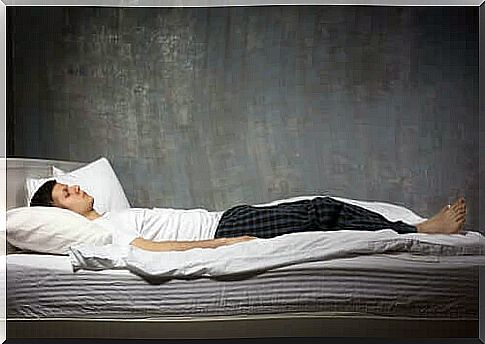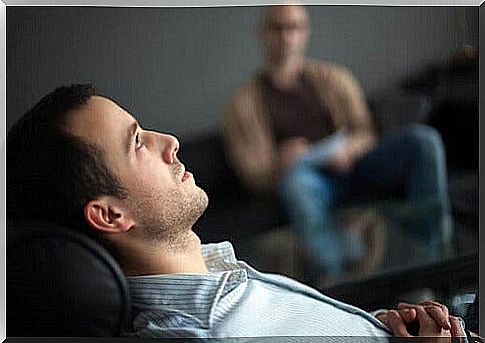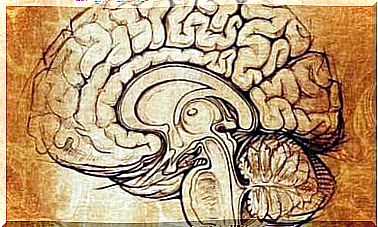Muscle Relaxant Therapy For Sleep Paralysis

Muscle relaxant therapy helps to treat sleep paralysis. This sleep disorder means that the muscles are paralyzed. It can happen when you go to sleep or just after you wake up. This condition comes from a problem in the brain mechanisms that control the REM wake cycle.
When you experience sleep paralysis, you are awake and can feel things. However, you cannot move any part of your body. Naturally, this situation leads to an abundance of anxiety and possibly hypnagogic and hypnopompic hallucinations.
Sleep paralysis falls into the category of primary sleep disorders. It is also not a result of mental illness, substance use, or any other medical problem.
The Diagnostic and Statistical Manual of Mental Disorders (DSM – IV, 1994 ) calls it a form of parasomnia. It basically affects your sleep quality and the amount of sleep you get.

The main characteristics of sleep paralysis
Your brain activity is almost exactly the same during the REM phase as when you are awake. This is the stage when you have the most complicated and emotional dreams.
As a result of evolution, some of your muscles are paralyzed during this phase. Adjustments to your sleeping habits can alter this process of turning the muscles on and off.
Which physiological processes are involved?
The body releases GABA neurotransmitters and glycine to help relax your body’s muscles. From there, they obstruct the motor nerve cells in your spine.
However, any problem in the awakening process can cause you to wake up before you have regained the ability to move and react. The limbic (emotional) system then processes and interprets the situation as you experience it.
The flight response
Once all this happens, the amygdala begins to respond based on these emotions. This intense emotional experience can bring about changes in the way you perceive things. This is where the visual, tactile and auditory hallucinations begin to occur.
Feeling that something else is in the room
With sleep paralysis it is extremely common that you feel as if something is watching you. The inability to move along with your anxiety and the heightened imagination coming from your sleep state make you expect to see something around you.
Your brain is on an extra high alarm. However, that doesn’t mean they are actually there. This is why it is so common for people with sleep paralysis to feel that someone or something is close to them.
Muscle-relaxing therapy for sleep paralysis: unmasking the ghost
Not many researchers have tried to find a specific psychological treatment for this condition. One of them is Baland Jalal from Cambridge University’s Department of Psychology. In 2016, he suggested using muscle relaxation therapy for muscle paralysis.
His argument is that the fear and anxiety create a feedback loop. That circle only makes the episodes and the hallucinations worse. He developed a possible treatment model with the following pillars:
- Reevaluating the Episode’s Meaning. Recognize that it is harmless and temporary (you will not die or be paralyzed forever). This also includes acknowledging that the hallucinations mainly occur because you were previously in REM sleep.
- Psychological and emotional distance. You need to understand that feeling worried and scared will only make the episodes worse. This also means accepting that it is not a paranormal event. It’s just a physical reaction.
- Meditate and focus your attention inward. It is essential that you work on meditation to successfully treat the problem. When you meditate you use certain mechanisms. They have to do with controlling your attention to ignore your hallucinations.
- muscle relaxation. You can more easily cope with the physical symptoms such as paralysis and the inability to breathe voluntarily if you ignore them. Otherwise, they will interfere with your efforts to focus on your inner world. You absolutely must remain calm and relaxed.

The importance of exercise in muscle relaxation therapy
If you want muscle relaxation therapy to help you treat sleep paralysis, you need to practice. First you have to imitate the position you are in when the paralysis occurs. From there you can go through each step.
When it happens it is very overwhelming. Practice will give you an opportunity to try these techniques without the stress of the actual episode.
Relaxation
According to experts like Dr. Ramchandran, the fact that your limbs and your motor system don’t converge, changes your sensory processing. When you want to run and your mind tries to do that, your body will do nothing. So it completely changes the feeling in which you perceive yourself.
This is why you may feel like you are floating or have the experience of stepping outside your body. You can also see scary things. However, if you try to relax instead of running away, those changes in perception can occur.
The treatment with muscle relaxant therapy
This is actually a form of cognitive behavioral therapy. The goal is to change your behavior. After all, the intention is to avoid ending up in a negative feedback loop. We should also mention that it depends entirely on your attitude whether or not the treatment works.
It also depends on another important aspect. To what extent do you have control over your attention? Being able to concentrate and interpret your sensations play a big role.
So this model says that you need to completely change your focus. This is where relaxation sets in. Away from negative external stimuli you move towards neutral or positive internal stimuli.
One last note. The experience may seem unusual, but it is not that serious. The episodes themselves are not as problematic as the mental toll they can take.
When you suffer from chronic sleep paralysis, you can experience a lot of anxiety. If you have any problems with this, as always, it is best to consult a professional therapist.









